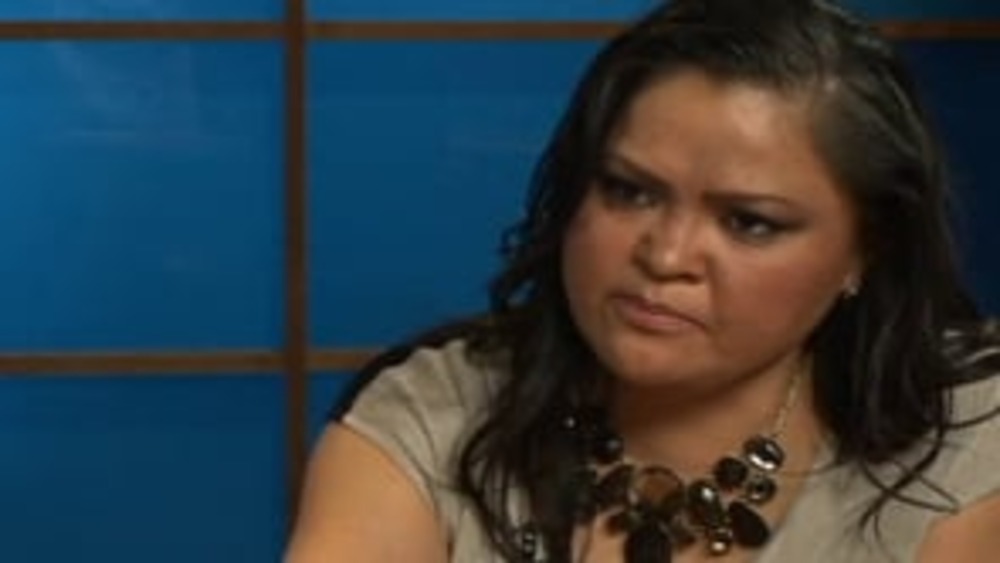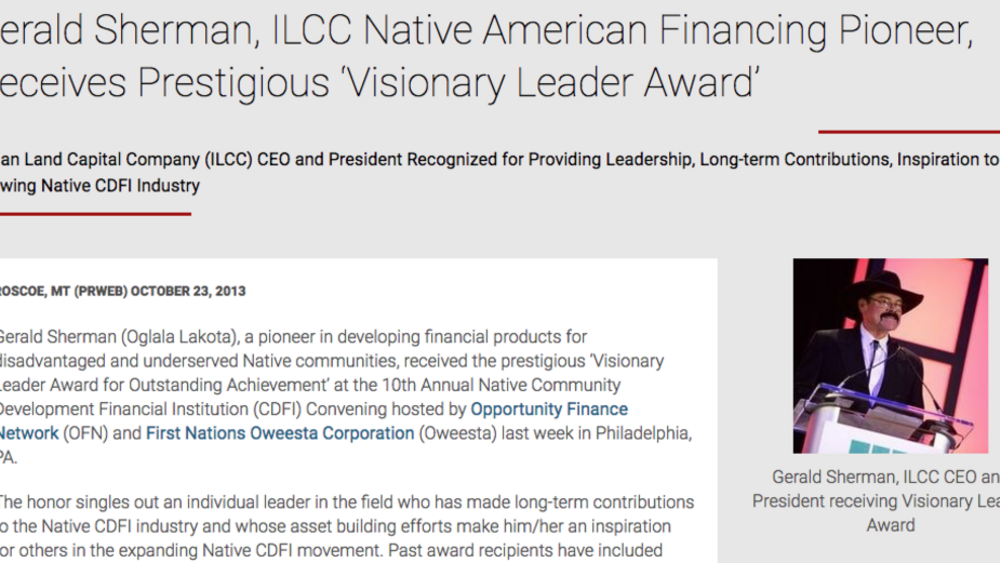Indigenous Governance Database
Gerald Sherman
Thumbnail

From the Rebuilding Native Nations Course Series: "Leaders Are Educators"
Native leaders and scholars stress that for Native nation leaders to be effective at advancing their nation's priorities, they need to do more than just make decisions -- they need to educate and consult the citizens they serve.
Image

Gerald Sherman, ILCC Native American Financing Pioneer, Receives Prestigious 'Visionary Leader Award'
Gerald Sherman (Oglala Lakota), a pioneer in developing financial products for disadvantaged and underserved Native communities, received the prestigious ‘Visionary Leader Award for Outstanding Achievement’ at the 10th Annual Native Community Development Financial Institution (CDFI) Convening…
